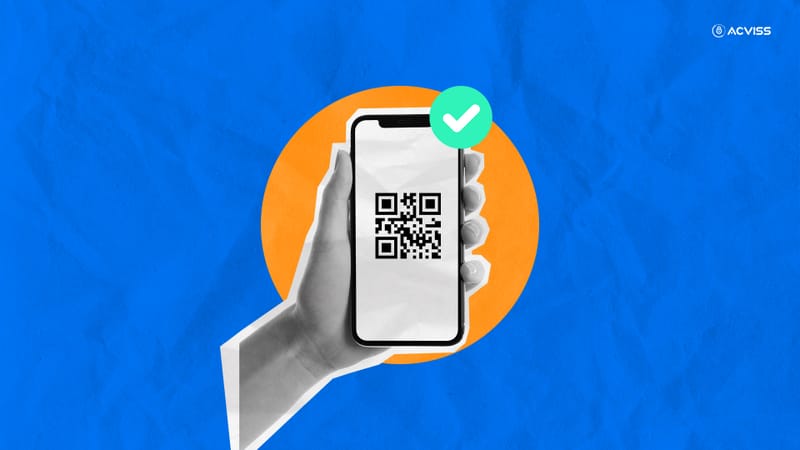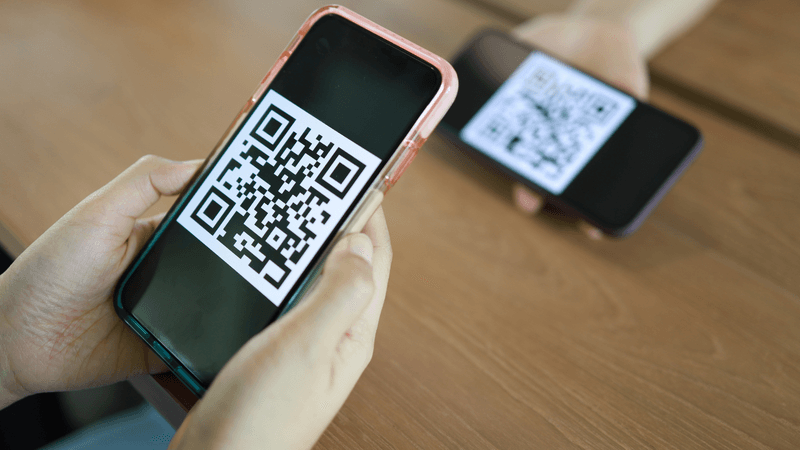Enhancing Brand Protection: The Role of QR-based Authentication

In today's digitally-driven landscape, safeguarding brand integrity is paramount for businesses across industries. As counterfeiting and illicit trade continue to pose significant threats, leveraging advanced authentication technologies becomes imperative. Among these, QR-based authentication emerges as a powerful tool in fortifying brand protection strategies.
Contents
Understanding QR Codes
QR codes, or Quick Response codes, are two-dimensional barcodes that store information in a matrix of black and white squares. Initially developed for automotive parts tracking, QR codes have evolved into versatile tools with applications spanning marketing, information sharing, and, importantly, brand protection. Their ability to store large amounts of data and seamless compatibility with smartphones make them ideal for authentication purposes. Consumers can scan the code with their smartphone cameras, instantly accessing a wealth of information and verifying product authenticity.
Implementing QR-based Authentication
- Integration into product packaging
QR codes can be seamlessly integrated into product packaging, offering consumers immediate access to product verification. Scanning the code could direct them to a secure website or mobile app where they can verify the product's authenticity using a unique serial number or embedded security features. This empowers consumers to make informed purchasing decisions and protects them from counterfeit goods. - Incorporating QR codes into marketing materials
Marketers can leverage QR codes embedded within promotional materials like advertisements, brochures, and posters. These codes can serve a dual purpose: facilitating product authentication and fostering consumer engagement. Consumers can verify product authenticity while simultaneously accessing additional information, such as product details, exclusive offers, or interactive experiences. - Utilizing QR codes for supply chain traceability
QR codes enable end-to-end traceability within the supply chain. By embedding a unique code on each product, stakeholders can track its journey from manufacturing to distribution. This provides valuable insights into product movement, helps identify potential bottlenecks or delays, and deters counterfeiters who struggle to replicate the complex tracking system.

Enhancing Consumer Engagement
Interactive brand experiences through QR codes:
Brands can create interactive experiences by linking QR codes to multimedia content, product information, or exclusive offers, enhancing consumer engagement and brand loyalty.
Leveraging QR-based authentication for loyalty programs:
QR-based authentication can be integrated into loyalty programs, rewarding consumers for authenticating products and fostering brand advocacy.
Personalizing consumer interactions with QR technology:
By leveraging QR technology, brands can deliver personalized messages, recommendations, and promotions based on consumer preferences and behaviour.
Strengthening Anti-Counterfeiting Efforts
- Real-time authentication with QR codes: QR-based authentication provides real-time verification, enabling consumers and stakeholders to authenticate products instantly and identify counterfeit items.
- Tracking and tracing counterfeit products: QR codes facilitate the tracking and tracing of counterfeit products, enabling authorities to identify the source of illicit trade and take necessary actions.
- Combating illicit trade through QR-based solutions: By implementing QR-based authentication solutions, brands can deter counterfeiters and protect their intellectual property rights, thereby mitigating the risks associated with counterfeit products.
Data Insights and Analytics
- Gathering consumer behaviour data via QR scans: QR code scans provide valuable insights into consumer behaviour, preferences, and demographics, enabling brands to refine their marketing strategies and enhance customer experiences.
- Analyzing QR code engagement metrics: Brands can track QR code engagement metrics such as scan frequency, location, and time, allowing them to measure the effectiveness of their brand protection efforts and optimize campaigns accordingly.
- Leveraging insights for strategic decision-making: By leveraging data insights derived from QR code scans, brands can make informed decisions regarding product launches, marketing initiatives, and supply chain management, driving business growth and profitability.
Future Trends and Innovations
The integration of QR codes with blockchain technology enhances security and transparency, enabling immutable authentication records and decentralized verification processes.
Ongoing advancements in QR code security features, such as encrypted QR codes and anti-counterfeiting measures, further strengthen brand protection efforts and mitigate the risks of tampering and replication.
QR-based authentication is poised to find applications beyond brand protection, including secure payments, access control, and identity verification, opening up new avenues for innovation and collaboration across industries.
QR-based authentication serves as a pivotal tool in enhancing brand protection efforts in the digital age. By leveraging QR technology, brands can fortify their defences against counterfeiters, engage consumers effectively, and derive actionable insights for strategic decision-making. As technology continues to evolve, embracing QR-based authentication will be essential for staying ahead in the battle against counterfeit products and safeguarding brand integrity.
Want to learn more on safeguarding your product, brand and online space, get in touch with us or book a demo today. Acviss has protected over 2 billion products globally and served 80+ brands scaling different industries and businesses. Join us to secure your standing in the market and amplify your brand and trust among your customers.
